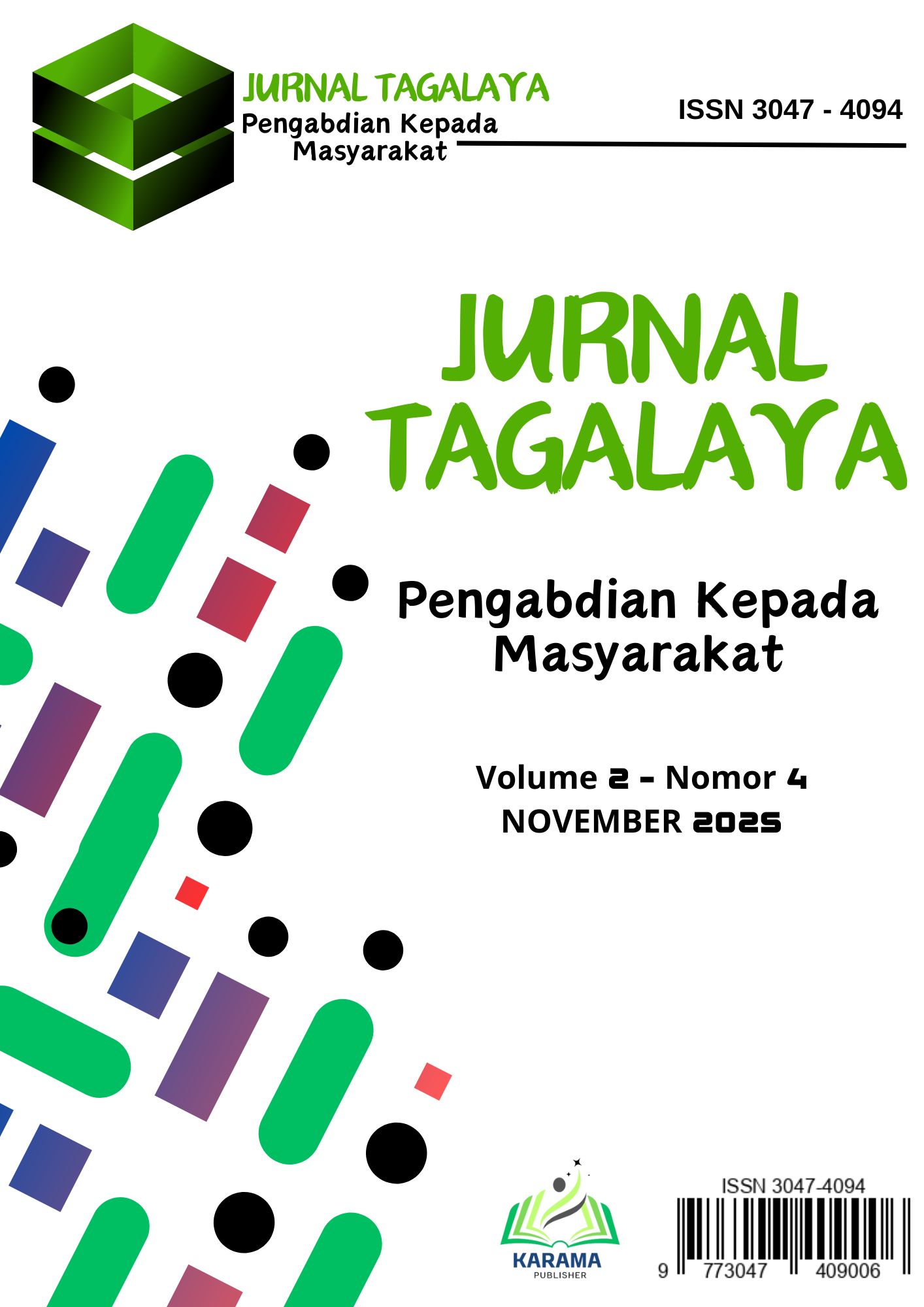Pengenalan Kegiatan Budidaya Laut Untuk Siswa SMA Negeri 1 Maluku Tengah
Isi Artikel Utama
Abstrak
Mariculture is a marine-based aquaculture system. The utilization of marine and coastal waters and their resources for aquaculture activities has long been developed and continues to be improved. Advances in cultivation technology and various innovations have been made to improve marine cultivation activities. Aquaculture technologies that can increase fish productivity must take into account the construction of the tanks, the selection of the cultivation location, the determination of the planting pattern, and the optimal maintenance of the fish. The purpose of introducing marine aquaculture activities using different aquaculture containers is to increase students' understanding and knowledge. The community service activity took place on April 29,2024.It was held at SMA Negeri 1 Maluku Tengah (Central Maluku State High School 1) on the island of Banda,with a total of 35 students participating. Interactive learning methods where the material is presented and followed by discussion. The results obtained in the initial test were a highest score of (42.85%) and a lowest score of (14.28%), indicating that the students' knowledge levels varied greatly. Therefore, the material was delivered in the form of marine aquaculture activities using several commonly used aquaculture methods, namely floating net cages, pen culture, partition, and long lines. The final test scores showed that the highest score was (100%) and the lowest was (88.57%). The results show that there was an increase in students' understanding and knowledge after the material was presented. The conclusion of this activity is that students gained additional knowledge about marine aquaculture with a complete aquaculture container system designed for the maintenance of marine organisms.
Rincian Artikel

Artikel ini berlisensi Creative Commons Attribution-NonCommercial-NoDerivatives 4.0 International License.
Referensi
Effendi, I. (2004). Pengantar Akuakultur. Jakarta: Penebar Swadaya
Hernanto, A.D., Sri Rejeki, dan Restiana W.A. (2015). Pertumbuhan Budidaya Rumput Laut (Eucheuma cottonii dan Gracilaria sp.) dengan Metode Longline di Perairan Pantai Bulu Jepara. Journal of Aquaculture Management and Technology. Vol.4, No.2: 60-66.
Kordi K, 2013. Buku Pintar Bisnis dan Budi Daya Ikan Baung. Yogyakarta: Lily Publisher
KKP. (2021). Cegah kepunahan KKP kembangkan budidaya teripang. https://kkp.go.id /brsdm/artikel/30124-cegah-dari-kepunahan-kkp-kembangkan
Mansauda G, Sampekalo J, Lumenta C. (2013). Pertumbuhan Ikan Kuwe Putih Caranx sexfasciatus di Karamba Jaring Apung yang Diberi Pakan Rucah Dengan Bahan Tambahan yang Berbeda. Jurnal Budidaya Perairan Vol. 1 No. 3: 81-86
Mustafa, A. A., Tarunamulia, T., Hasnawi, H., & Radiarta, I. N. (2017). Karakteristik Dan Kesesuaian Perairan Untuk Budidaya Rumput Laut Di Kabupaten Kepulauan Sangihe, Sulawesi Utara. Jurnal Riset Akuakultur, 12(2), 187. https://doi.org/10.15578/jra.12.2.2017.187- 196
Perie. (2012). Sistem Teknologi Budidaya Perairan. http://www.slideshare.net/perie/sistem-teknologi-bdp
Rejeki, S., Aryati, R.W., Widowati, L.L. (2019). Pengantar Akuakultur. UNDIP Press. Semarang. 120 hal. ISBN: 978-979-097-517- 0.

